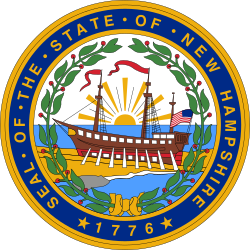| |||||||||||||||||||||||||
Both New Hampshire seats to the United States House of Representatives | |||||||||||||||||||||||||
|---|---|---|---|---|---|---|---|---|---|---|---|---|---|---|---|---|---|---|---|---|---|---|---|---|---|
| |||||||||||||||||||||||||
| Elections in New Hampshire |
|---|
 |
The 1984 United States House of Representatives elections in New Hampshire were held on November 6, 1984, to determine who would represent New Hampshire in the United States House of Representatives. New Hampshire had two seats in the House, apportioned according to the 1980 United States census. Representatives are elected for two-year terms.